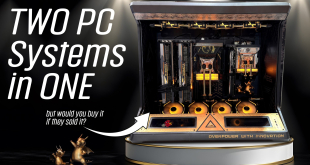Back in 2014, IBM struck a deal to sell its chip-making business to GlobalFoundries for $1.5 billion. There were a number of provisions in this deal, some of which IBM believes weren't met and as a result, the company is threatening legal action – something that GloFlo is already looking to stop in its tracks.
IBM agreed to pay GlobalFoundries $1.5 billion to take its chip making business off of its hands and in return, IBM would become GlobalFoundries' exclusive provider of power processors for a 10-year period. GlobalFoundries also obtained access to IBM-owned IP and manufacturing facilities in New York and Vermont. IBM believes that some terms of the agreement were broken by GlobalFoundries and as such, the company has reportedly threatened to sue for around $2.5 billion.
As reported by Bloomberg, GlobalFoundries is now looking to defend itself from potential legal action. The company asked a judge to rule that it does not owe $2.5 billion to IBM over the 2014 acquisition deal. The timing of this is important, as GloFlo is currently preparing to file an IPO, which would turn it into a publicly traded company.
In its lawsuit filing, GlobalFoundries says that the timing of this lawsuit threat is “highly suspect” due to the upcoming IPO, which could see the company valued at $30 billion. IBM has not yet commented publicly on the matter.
Discuss on our Facebook page, HERE.
KitGuru Says: It looks like GlobalFoundries and IBM will be butting heads in court for a while. We'll be keeping an eye out for more updates on this story.
 KitGuru KitGuru.net – Tech News | Hardware News | Hardware Reviews | IOS | Mobile | Gaming | Graphics Cards
KitGuru KitGuru.net – Tech News | Hardware News | Hardware Reviews | IOS | Mobile | Gaming | Graphics Cards



